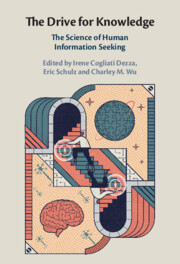‘Why do we want to know what we want to know? This remarkable collaboration weaves together insights from a new wave of science uncovering what motivates us to seek information about the unknown. An enriching and thought-provoking read both for experts and newcomers to the field.’
Ethan Bromberg-Martin - Washington University in St. Louis, USA
‘This book is an intellectual feast, brimming with delights for researchers from many fields. While grounded in rigorous computational theory, the chapters do not shy away from big questions about fuzzier concepts like curiosity, play, interestingness, and intrinsic motivation. The inquisitive reader will not be disappointed.’
Sam Gershman - Harvard University, USA
‘Curiosity - the drive for knowledge and information - is one of the most fundamental and important human characteristics. But, until recently, we haven’t really understood that drive for knowledge scientifically. This volume brings together the results of a fascinating and cutting-edge interdisciplinary research program, including motivation and cognition, development and decision-making, computation, and neuroscience. The book, which includes the leaders in this new field, gives a new perspective on the ancient and profound question of human curiosity and will be essential reading for researchers across a wide range of disciplines who are curious about curiosity.’
Alison Gopnik - University of California at Berkeley, USA
‘Research on information seeking is rapidly emerging as a unifying force in cognitive science - one that seeks to explain how humans and animals build and refine their models of the world. By integrating mathematical models with psychology and neuroscience, this fascinating new volume provides a concise overview of the motivations and mechanisms that support information search, and highlights the pervasive role our thirst for information (and misinformation) plays in human society.’
Stephen Fleming - University College London, UK
‘This book will be of value to researchers interested in the brain and behavior, whether working in disciplines related to psychology (e.g., cognitive science, neuropsychology) or in computer science. … Recommended.’
G. C. Gamst
Source: Choice



